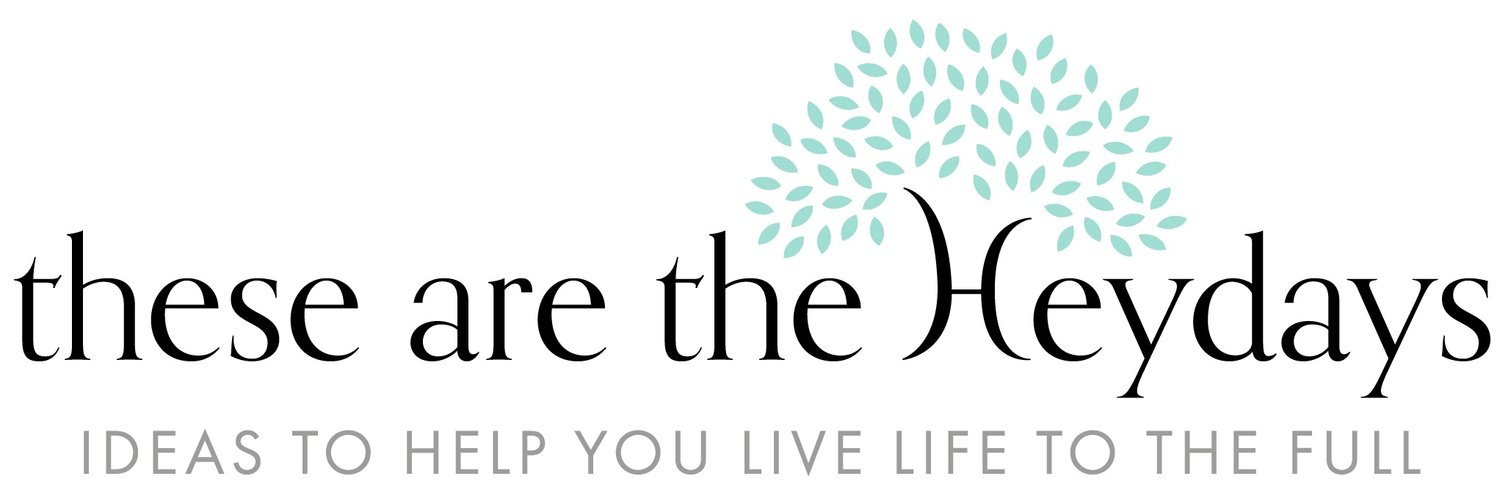5 skills you can learn that are useful in nearly every aspect of life
I’m always on the look out for the best, most trustworthy and useful advice and information to share with you on These Are The Heydays. And I’ve always written all the content for this site myself. But for this blog post, I’m trying something different.
What follows is an edited version of a blog from the fantastic website RestLess a brilliant digital platform packed with inspiring, useful, interesting and helpful content, courses and conversations aimed at the over 50s.
The full-version post, written by Elise Christian, which you can read here, suggests eight ways to learn and/or develop the kinds of skills that you can apply and benefit from, in all kinds of ways, both expected and unexpected.
I’ve chosen five of them to highlight here. You will see there are links to other, more in-depth content, both on the RestLess site and elsewhere if you want to find out more about honing the skills I’ve selected from Elise’s list.
Ready to find out what they are? Let’s go!
Developing new or existing skills is one of the most rewarding and empowering things that we can do as humans. It involves hard work and the courage to step outside of your comfort zone – but we get much more out of life as a result.
Because there are no limits on human potential, it’s difficult for us to reach a stage where we can no longer grow and improve. Just this thought alone is pretty exciting – because who knows what could happen if you really challenge yourself?
1. Resilience
The coronavirus pandemic has presented significant challenges for all of us recently, and has highlighted the key role that resilience plays in helping us navigate through times of great uncertainty. We’ve had to adapt to spending much more time at home, social distancing and for many of us – losing people, income, or other things that are important to us. None of this is easy and there have been times where we’ve all faltered, but the fact that we’ve continued to move forward, and coped in the ways that we can, shows the astounding resilience and adaptability we are capable of as a human race.
In a nutshell, resilience describes our ability to cope with and recover from adversity. It’s a unique type of strength, determination, or grit that we use to make it through tough times. Much of this is acquired naturally as we move through difficult situations in life – but it’s also something that can be consciously learned or developed at any stage of life.
If resilience is a skill that you’re interested in developing, then our article, The importance of resilience and learning to adapt discusses resilience and adaptability in more depth. It also offers steps you can take to improve these skills.
2. Negotiation skills
Negotiation skills are extremely powerful because they enable you to communicate well, influence other people, and prompt positive change. Strong negotiation skills can not only help you to negotiate contracts and agreements in a more formal work setting, they can also help you with a host of situations in your personal life.
Perhaps you’re looking to buy a car and want to negotiate a price with the seller, or maybe you’ve got noisy neighbours with whom you could negotiate the hours at which they play loud music. Contrary to popular belief, being a good negotiator isn’t about always holding out for a hard bargain. When you negotiate successfully, you build better connections with people because you demonstrate that you’re prepared to make an effort to reach an agreement that suits both parties. You do this by striving to get as much as you can out of a situation, whilst still considering the needs of the other person and what they too might be looking to gain.
If you want to learn more about different negotiation strategies and key tactics for success, then it’s worth taking a look at FutureLearn’s free Successful Negotiation: Essential Strategies and Skills* course, which will take you through four steps to successful negotiation.
3. Decision making skills
In life, we’re required to make work-based decisions, financial decisions, and decisions that affect the future of our families. We also make decisions about what to have for lunch, whether to attend social events and what to watch on TV – just to name a few. And while some decisions are fairly inconsequential, others have the power to affect not only your life, but the lives of those around you.
Being able to make decisions effectively means being able to use critical thinking to make confident decisions based on a mixture of fact and gut instinct – and stick to them. When we do this, we build confidence and trust in our own decision-making ability and become better equipped to tackle more complex decisions that arise in the future. Day to day life can become much easier when we are able to make firm decisions. This is because we spend less time fretting over our choices, and more time living and learning from our decisions (which can be very liberating!).
4. Optimism
Optimism isn’t about butterflies and rainbows, nor is it a skill that you either have or you don’t – it’s something that you can adopt and develop at any point in life. People who can be optimistic, even in the most challenging of times, are able to learn from situations, look for the positives and see new opportunities – even when things get tough. Optimists generally accept that it’s not possible to control every situation in life, but that you can control how you think about and react to things. For this reason, they are much more likely to continue moving forward when faced with an uphill struggle, rather than dwelling on the negatives.
The RestLess article, How to learn the skill of optimism goes into more detail about how optimism is defined, why it’s important and how you can start applying it to your life.
5. Problem solving skills
Overcoming hurdles at home or work is generally much easier if you have the right tools to help you cope with them. From figuring out why your computer isn’t working to managing a difficult customer at work and overcoming problems in personal relationships – being able to see problems as challenges can be a great way to start focusing your mind on how to solve them.
There are many challenges in life that we initially worry we won’t be able to tackle, but somehow we always do. And every time we face a new challenge, we typically feel stronger and better equipped to deal with other problems that we might face later on. However, because problems vary so much in shape and size, doing what you can to sharpen your problem-solving skills (so that you always have a solid framework to work from), can help you feel much more in control of your own life and minimise any anxiety about problems that might come your way.
Future Learn’s free Good Decision Making: How to Choose the Right Problem to Solve* can help you learn how to identify, analyse, and solve problems across all areas of your life.
While it’s likely that you will already have skills in each of these areas, it can be helpful to look at the different ways in which you can continue to develop these skills. Personal development is beneficial for numerous reasons, including improved productivity, healthier relationships, and enhanced self-confidence and control.
We will always be met with new and difficult challenges in life. But the wider our skill set and stronger our resilience, the better positioned we will be to meet these challenges head-on, and to help us move forward through even the darkest of times.
The full version of this article is on the RestLess website
Have you found these, or other skills, useful in your life? And if so, how? Do share your thoughts and experiences in the comments below.
Other posts you’ll enjoy
What to do if you’re struggling with post lockdown languishing
Living my best life and what that means to me





